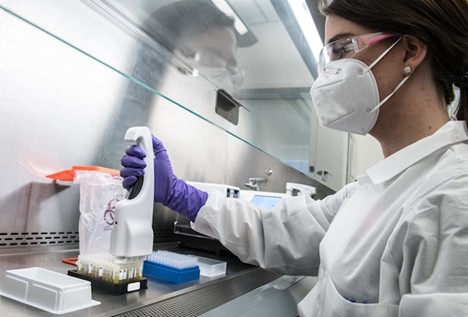
As biotechnology evolves into a multi-trillion-dollar global powerhouse, the race to secure specialized scientific talent is intensifying. With projections estimating the market will grow to as much as $5 trillion by the early 2030s, the need for highly trained professionals is far outpacing current supply. Driving this explosive growth are advancements in biologics, gene therapies, synthetic biology, tissue engineering, and data-driven innovation, fueling a sharp uptick in demand for researchers, engineers, and analysts with highly niche skill sets. To stay competitive, many organizations are partnering with science-focused recruiter agencies that specialize in connecting biotech employers with the rare, cross-disciplinary expertise needed to lead in this rapidly expanding landscape.
The rise in chronic and rare diseases is pushing development of targeted therapies and regenerative treatments. Simultaneously, the cost of DNA sequencing and synthesis has plummeted, making synthetic biology applications far more scalable.
As synthetic biology climbs toward a projected $61.6 billion market by 2029 (CAGR >26%) and cell and gene therapy expands rapidly, institutions need talent who can design, validate, and produce these innovations responsibly.
Synthetic biology experts are in high demand for designing microbes or cell systems as living factories. From optimizing genetic circuits to programming chassis organisms for novel biofuels, materials, or therapeutics, this field combines engineering precision with biological creativity.
Professionals in this space lead innovation by turning biology into programmable technology, skills that remain rare and highly sought after.
As gene editing and cellular therapies move toward commercial deployment, biotech employers need translational scientists who can standardize protocols, manage manufacturing workflows, and meet regulatory standards. These professionals ensure that experimental therapies become reproducible, safe, and scalable—as clinical breakthroughs move toward real-world impact.
Large-scale biotech initiatives - from omics analyses to high-content screening - generate enormous datasets that must be cleaned, modeled, and interpreted. Bioinformatics professionals fluent in Python, R, and machine learning help turn raw biology into actionable insight. Their contributions accelerate pipelines in personalized medicine, discovery biology, and predictive diagnostics.
Success in biotech requires more than discovery, it demands reproducibility. Process engineers help convert lab-scale discoveries into production pipelines that comply with GMP standards and ensure consistency, purity, and scalability. These roles are central in moving evolving therapies into licensed treatments.
The most successful biotech companies balance innovation with compliance. Regulatory experts navigate FDA and EMA requirements, manage submission documentation, and shape inspection readiness. These professionals are vital in translating breakthrough therapies, especially those using CRISPR or cell platforms, into real-world approvals and insured patient access.
Even the most advanced therapies require a strategic entry plan. Experts in commercialization, payer relationships, and pricing strategy guide biotech ventures to navigate reimbursement landscapes, advocate for rare disease access, and build pathways from clinical success to revenue generation.

North America continues to dominate biotech investment, but Asia-Pacific is the fastest accelerating region, driven by government support, VC funding, and expanding healthcare demand.
Major biotech hubs, such as Boston, San Francisco, London, and emerging hubs across India and China, are desperate for hybrid-skilled professionals.
In Boston, for instance, the biotech workforce grew roughly 55% between 2008 and 2020, with a rapid rise in lab leasing and academic partnerships.
Simultaneously, India’s biotech ecosystem is strengthening, with plans to nearly double its sector value from $150 billion in 2025 to over $300 billion by 2030.
While interest in biotech roles remains high, there's concern among emerging scientists that supply may soon outpace demand, especially if new graduates flood the job market without differentiating hybrid skill sets.
The current market may favor employers, but that dynamic is changing as hiring teams aggressively seek talent who can bridge experimental biology with computational workflows.
To fill these roles, organizations must redefine job descriptions and recruitment strategies. Posing hybrid requirements, like “experience in molecular biology and AI-powered analytics”, helps narrow in on rare candidates. Partnerships with science recruiting agencies and universities can accelerate access to top graduate and postdoctoral talent. Biotech companies that invest in internship pipelines and cross-disciplinary training programs are better positioned to meet growth demands.
Biotechnology will not grow at scale through R&D alone; it requires a workforce that can innovate, test, manufacture, regulate, and commercialize. Every specialty, from synthetic biology designers to therapy manufacturing leads and data scientists, plays a strategic role in turning scientific breakthroughs into societal benefits. Firms that build and support these interconnected teams will deliver impact, not just patents.
If you're a life sciences professional, or considering entering the field, this is the time to develop both domain depth and versatile technical capability. Internships in gene editing, coursework in bioinformatics, or experience with biomanufacturing will help position you above peers. Flexibility and willingness to collaborate across disciplines are increasingly assets, not liabilities.
Biotech is entering a golden era, driven by evolving tools in precision biology, AI discovery, regenerative medicine, and sustainable solutions. As the industry transitions toward market sizes in the trillions, the workforce capable of navigating this complexity will define which organizations lead and which follow.
By investing thoughtfully in hybrid talent and scientific professionals who cross traditional boundaries, employers unlock innovation at speed and scale. For job seekers, building that breadth and depth offers opportunity, impact, and the chance to shape the future of the living world.